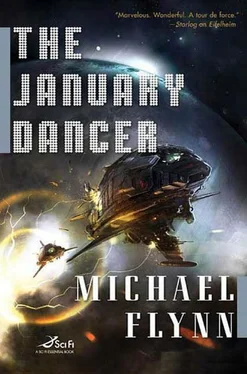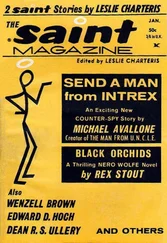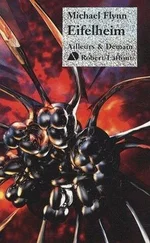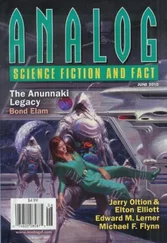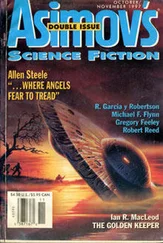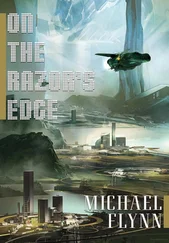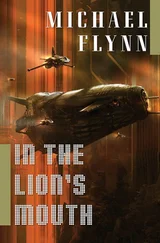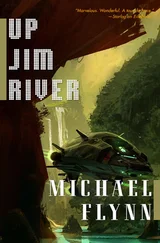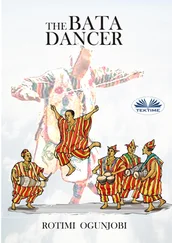“She?”
He turns red-rimmed rheumy eyes on her. “Your mother. The witch.”
“She didn’t send me.”
“No?”
“I’m chasing her, too.”
The scarred man digests that a time in silence. “I see,” he says at length, “that is the ‘One Thing’ that you have loved and lost.”
“Not a thing, a person.”
“And there’s no music for that, is there?”
“Your story’s not at an end yet. And at the end of your story I may hope to find the beginning of mine. What is the second way? In what other way may we speak of the story’s end?”
They sit side by side now, no table between them, but neither do they face each other. “An end,” the scarred man says. “There are qualities each story must possess, and when it has them it has been perfected. However good or bad the story may be, when it has all the qualities it needs to be itself, what can change accomplish but to lose one of them, and so become something less.” He inclines his head toward the harp case, which she has once more slid from her back. It rests now between her knees. “What you played here this afternoon…You will never again play it without remembering this day, without comparing it to this day, and it will never sound half so fine on your fingertips as it did here in a dusty, closed-in plaza of the Corner of Jehovah. You and others may play it from now until the Heat Death, but in that way, it has come to its end. From now on, it will always be a reprise.”
In answer, she recites a proverb: “‘A tune is more lasting than the song of the birds.’”
Perforce, he must complete it: “‘And a word is more lasting than the wealth of the world.’”
“What are those words, seanachy? Your story has yet to perfect itself.”
“What has she already told you?” he asks. “How does her version run?”
But the harper only shakes her head and stares silently at the windowless building before her. Eventually, the scarred man grunts. “I’ve never seen any reason for self-deception,” he says. “But she spent her whole life deceiving people. Why should she have exempted herself?”
“You don’t know that,” the harper says without looking at him. “I knew a different woman, sweet, gentle, but always with a sadness beneath her smile. It was a wan smile, the ghost of a smile. You had to look twice to see that it was there. But once you saw it…”
The scarred man nods slowly. “Aye. I knew her long ago, and what man or woman is only one man or woman? She had a god who was supposed to be three without being more than one; but she put her god to shame with the multitude she comprised.” He turns his head and his eyes pin her. “Are you certain you want to know how this ends?”
“It’s why I came.”
“It may also be why you go.”
She thinks for a moment, then nods her head slowly. “It may. But the question is: To where?”
Geantraí: The Call of Dooty
Die Bold, like the other Old Planets, is a place where the future was born but whence, like an ungrateful child, it has departed to seek its fortune elsewhere on the Periphery. The Old Planets have been left like aged parents in an empty nest, remembering what things had been like when the future was young.
Like any whelping, the future had been delivered amid pain and blood and cries of anguish, despite it having been, in some sense, a Caesarean birth. In those days, so the stories ran, they really had been Terrans and really had remembered Terra herself, and not just, as now, the memory of that memory. Cast across the Rift, mingled with strangers, they had huddled and despaired and fought with one another and slowly built something new from what wreckage they had saved.
Die Bold was old enough to have a history. Scattered and quarrelsome refugee camps had grown into cities, burned in civil wars, grown again upon the ruins. Conquerors came and went; old arts informed new renaissances; knowledge lost was rediscovered—or its merest memory vanished forever. Archives conserved by loyal priesthoods were cracked and archaic tongues deciphered, and humanity cruised once more along Electric Avenue. Die Bold explorers arrived at Abyalon. A ship of Old ’Saken encountered one from Friesing’s World already in orbit at Bandonope. Megranome found bustling industry on Waius; sustenance farmers on Cynthia; and naught but desolation on the nameless worlds of the Yung-lo Cluster.
Ships went forth to terraform and settle. New worlds incubated, farther from the menacing Rift: Jehovah and Peacock and New Chennai; High Tara and Hawthorn Rose; Valency and Alabaster and far-off Gatmandar.
Until, after a thousand years of splendor, a millennium of effort, the Old Planets settled back to enjoy a well-earned rest.
And so there was in the spirit of each Die Bolder something of the refugee’s despair, something of the youthful rush of rediscovery, something of the querulous satisfaction of old age; and something too of the insecurity of the epigone. Visitors from the rawer worlds of the League often perceived in them a false humility; but there was nothing false about it. Behind their every triumph lay the suspicion that it had been surpassed in the old Commonwealth of Suns, and that they were at best only second best. It took something of the heart out of everything they did and put something heartfelt into their humility.
It was four days inbound from the coopers to Die Bold itself, during which time the Hound and the Pup agreed not to announce themselves officially, nor even to admit they were traveling together. They did not know that the phantom fleet had been bound here, nor that the fleet would expect pursuit, but until then Greystroke would be a merchant from Krinth named Tol Benlever and Bridget ban would be Julienne Melisond, a lady of the court. And because Hugh would be more convincing as Greystroke’s factotum, Bridget ban took the Fudir to play the role of her manservant. The two swapped ships during the layover on Jewel-of-the-Giantess, a transshipment station orbiting the second gas giant in the outer reaches of Die Bold’s system. There was sufficient bustle and coming-and-going so that no one noticed that some people left in a different ship than brought them. Julienne Melisond stopped for the spectacular view of the double rings that the Jewel provided, while her man, “Kalim,” chatted with the servants and kitchen staff. The Krinthian merchant was little seen, as befitted a merchant prince, but his representative, “Ringbao,” was everywhere, discussing trade opportunities and inquiring after recent events with other traders and with Die Bolders outward bound.
That night Bridget ban told Greystroke that she planned to send the Fudir into the Corner of Die Bold once they were down. “Terrans are everywhere,” she said, “and what one knows they all know; but they’d sooner spit than trust an ‘eetee.’”
“An ‘eetee’?” Greystroke asked.
“It’s what they call anyone who is not a Terran.”
Greystroke propped himself on his elbow and ran his hand along her flank. “Do you trust him to come back?” he murmured. “I’d hate to lose him, now that I have him.”
“He wants the Dancer as much as you and I. Beside, I’ve programmed aimshifars into the livery I gave him. If he bolts, we can always find him through the anycloth.”
Greystroke chuckled. “Using a bolt to find a bolt. Droll. Very well, Cu. I cannot deny you.”
Aye, thought Bridget ban sadly, drawing him close. Ye cannae.
Èlfiuji was capital of the Kingdom and the largest city on Die Bold, a soaring metropolis hard by Morrigan’s Ford on the River Brazen. The ford had given the city its original rationale, but had long since faded to irrelevance. Thopters and whirlies now buzzed between the towers and the New Royal Bridge arced across the treacherous currents, indifferent to the age-long absence of royalty.
Читать дальше
